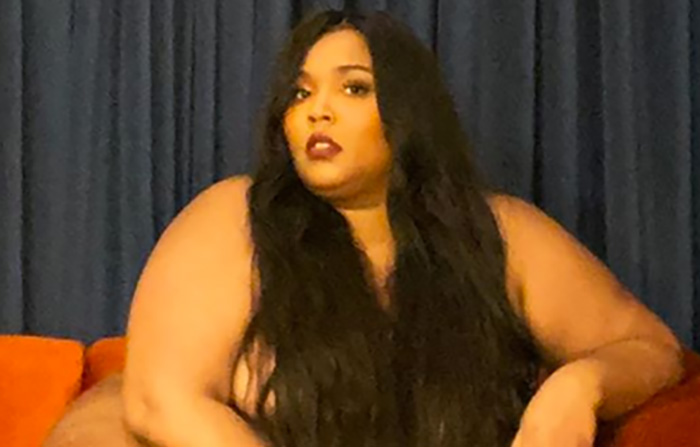After watching his business partners Samsung purchase 1 million copies of his new LP ‘Magna Carta Holy Grail’, he has learned that rules that would otherwise ban him from going Platinum because of this have now been changed, in a shock move made by the Recording Industry Association of America.
While some had been against the Rapper going Platinum (as its 1 million units sold didn’t truly represent consumer interest in the product), the entertainer will now see him score that feat on the project’s July 4th release date, as explained by the RIIA below:
“By now, many of us in the music business, as well as Jay-Z fans, know that Samsung has purchased one million “Magna Carta Holy Grail” digital albums to be given away to the phone maker’s customers. It is a novel and creative marketing move and it has rightly stimulated a healthy conversation about the sale’s meaning and implications for the modern music business.
For us, the move prompted a re-examination of our historic Gold & Platinum (G&P) Program award rules. As we dug through the records of audits, re-reviewed rules and consulted with our auditing firm of more than thirty years, Gelfand, Rennert & Feldman, we discovered one rule disparity that no longer makes sense.
One of our program’s requirements is that an album can become eligible for certification 30 days after release date. (There are other rules, of course – such as requiring that the price of the album meet certain requirements.) The 30-day rule exists to take into account potential returns of physical product – CDs, cassettes, vinyl, etc. that could be shipped to brick and mortar retailers and returned, in which case our auditors do not count the sales.
When we first created the Digital Single Award in 2004, we elected not to impose any 30-day rule because there are very few digital returns. According to our auditing firm, digital returns on average account for less than two percent of sales included in reports provided by the labels for certification – most digital retailer Terms of Use/Service allow users to return products only under limited circumstances.
Also at the time in 2004, sales of digital albums were virtually non-existent and accounted for a small fraction of overall digital sales. Fast forward a decade and that’s obviously no longer the case.We think it’s time for the RIAA – and Gelfand, Rennert & Feldman – to align our digital song and album certification requirements. That’s why today we are officially updating this rule in our G&P Program requirements. Going forward, sales of albums in digital format will become eligible on the release date, while sales of albums in physical format will still become eligible for certification 30 days after the release date.
Not only do we believe it’s sensible and logical to align digital album rules with those we have maintained for digital singles since the program’s inception, we also consider today’s move in line with our larger efforts to modernize the G&P Program to reflect the new music marketplace. In May we announced the integration of on-demand streams to the program to more broadly recognize online demand for songs.
The reality is that how fans consume music is changing, the music business is changing as labels and artists partner with a breathtaking array of new technology services, and the industry’s premier award recognizing artists’ commercial achievement should similarly keep pace. In short, we’re continuing to move the 55-year-old program forward and it’s a good day when music sales diversification and innovative strategies meet the RIAA’s time-tested, gold standard requisites for certification.
Liz Kennedy
Director, Communications and Gold & Platinum Program, RIAA.”
After premiering his new Samsung commercial during Game 7 of the NBA Finals, Billboard revealed the cover of their latest issue. The cover story “Jay-Z’s New Blueprint” is available now and breaks down Hov’s new deal in regards to sales and album charting.
It is in this spirit that I say it wasn’t as simple as you might think to turn down Jay-Z when he requested that we count the million albums that Samsung “bought” as part of a much larger brand partnership, to give away to Samsung customers. True, nothing was actually for sale — Samsung users will download a Jay-branded app for free and get the album for free a few days later after engaging with some Jay-Z content. The passionate and articulate argument by Jay’s team that something was for sale and Samsung bought it also doesn’t mesh with precedent.
Retailers doing one-way deals is a fact of life in the music business. When Best Buy committed to and paid upfront for 600,000 copies of Guns N’ Roses’ “Chinese Democracy” in 2008, those albums didn’t count as sales — not until music fans actually bought them. Had Jay-Z and Samsung charged $3.49 — our minimum pricing threshold for a new release to count on our charts — for either the app or the album, the U.S. sales would have registered. And ultimately, that’s the rub: The ever-visionary Jay-Z pulled the nifty coup of getting paid as if he had a platinum album before one fan bought a single copy. (He may have done even better than that — artists generally get paid a royalty percentage of wholesale. If Jay keeps every penny of Samsung’s $5 purchase price, he’d be more than doubling the typical superstar rate.) But in the context of this promotion, nothing is actually for sale.
Writer Bill Werde also goes on to cite label sources expecting first-week sales of around 400-450k. It’s not platinum status, but it should definitely be enough to give Hov his 13th No. 1 on the Billboard 200. Adding to his effort to reach The Beatles’ ever-illusive (most-likely impossible) 19.

![Da Brat Marries Judy Dupart on 2.22.22 [PHOTOS]](https://hiphopucit.com/wp-content/uploads/2022/02/1645669184565-440x264.jpeg)
![Drake Reveals Photos of His Son Adonis [Photos]](https://hiphopucit.com/wp-content/uploads/2020/03/Drake-and-on-Adonis-HHUCIT.jpg)

![Megan Thee Stallion – “BOA” [NEW VIDEO]](https://hiphopucit.com/wp-content/uploads/2024/05/Megan_Thee_Stallion___BOA__Official_Video__1_12_screenshot-440x264.jpg)
![Doechii Feat. JT – “Alter Ego” [NEW VIDEO]](https://hiphopucit.com/wp-content/uploads/2024/05/Screenshot-of-Doechii-and-JTs-Al-440x264.png)
![Young Thug Feat. Drake Drop – “Oh U Went” [NEW VIDEO]](https://hiphopucit.com/wp-content/uploads/2023/07/Young-Thug-and-Drake-1014x570-1-440x264.png)







